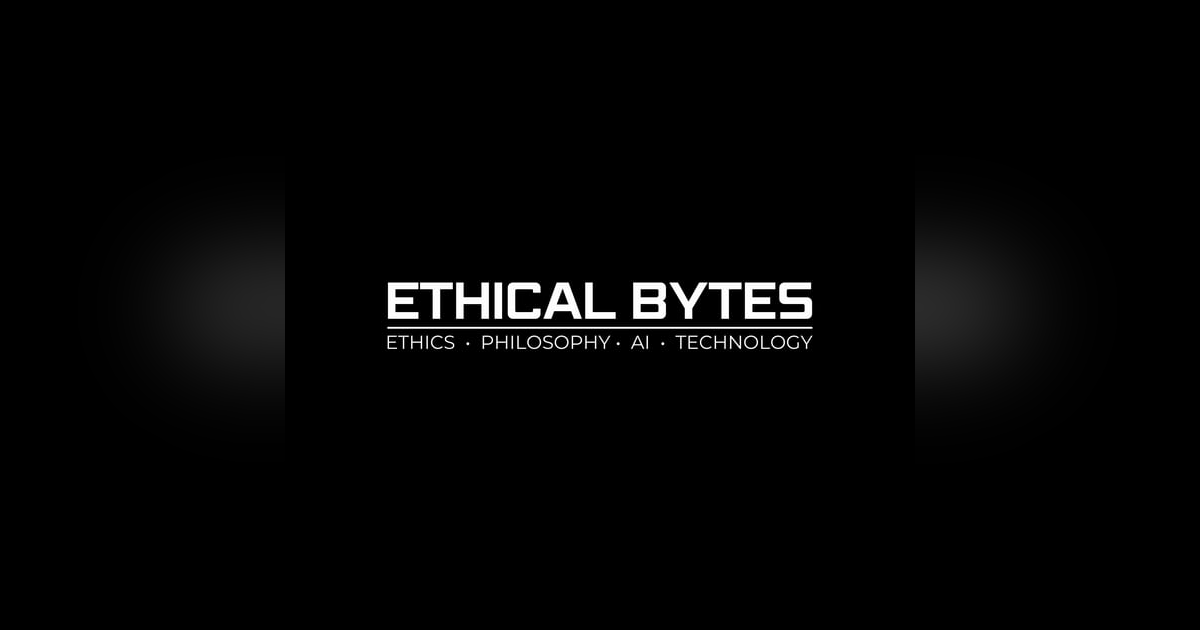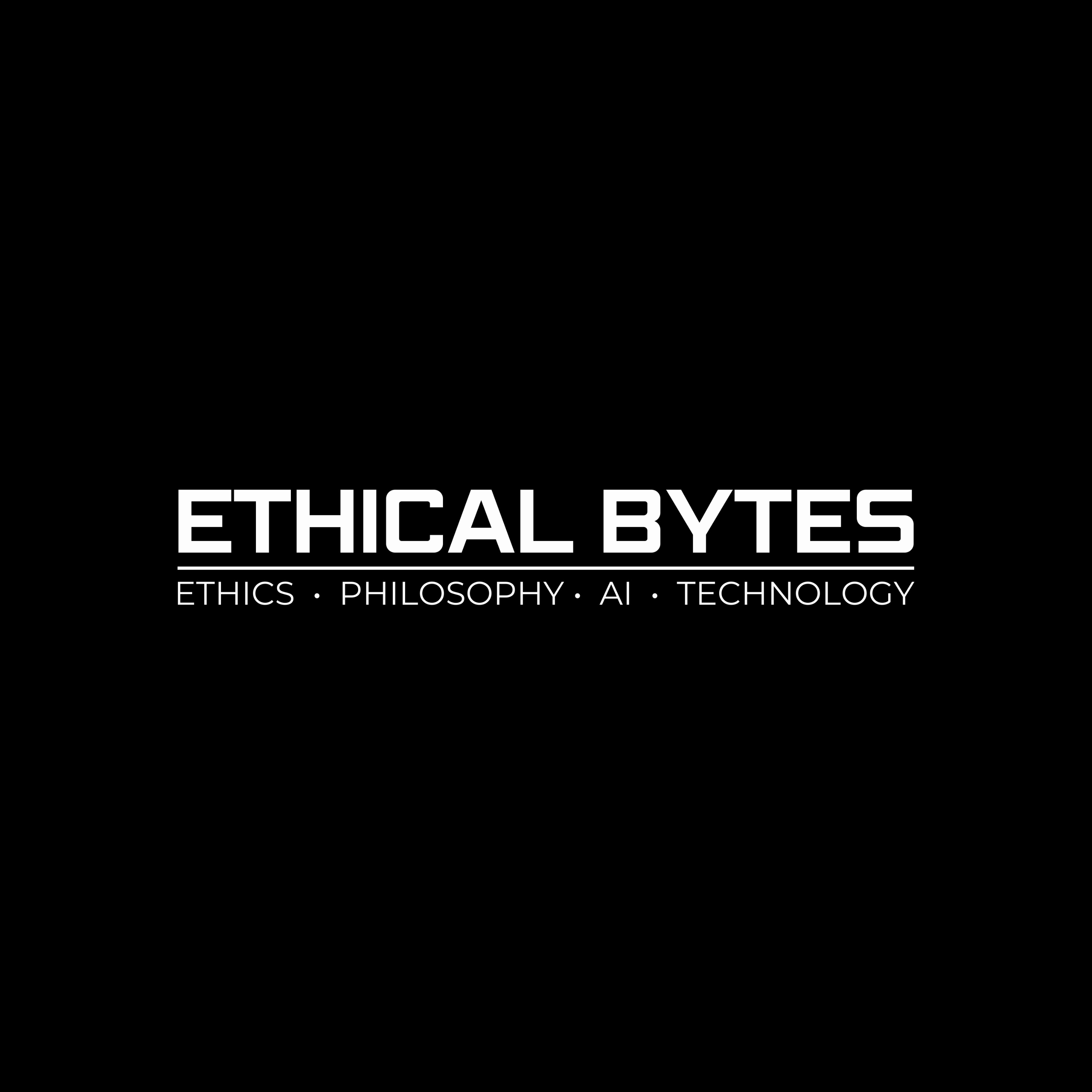Is AI Antithetical to Human Nature? (pt 2)


When all is said and done, does AI truly enhance our humanity, or does it undermine it? In this second part of the two-part series, our host, Carter Considine, draws on ancient Greek philosophy to determine whether AI can coexist with or disrupt the essence of what makes us, us.
One might say that AI is the ultimate form of technē—a tool designed to mimic and amplify human intelligence. Proponents like Marc Andreessen argue that AI could enhance human potential, solve global challenges, and enable unprecedented progress. However, much like Heidegger's critique of modern technology, AI risks reducing human relationships and creativity to transactional, utilitarian exchanges.
It’s time to consider a more mindful approach to AI, where technology supports Man’s flourishing without eroding the human being itself. By reconnecting technē with phusis, AI could enrich our lives, enhance creativity, and safeguard the intrinsic value of human connection and judgment.
Key Topics:
- The Dual Promise of AI (00:00)
- Reclaiming Technē in the Age of AI (02:38)
- Safeguarding Humanity (03:33)
- Charting a Pro-Human, Pro-AI Future (06:49)
More info, transcripts, and references can be found at ethical.fm
Welcome back to Ethical Bytes. This is part two of a two-episode series. If you missed last week's episode, make sure to check that one out first.
The Dual Promise of AI
AI is the ultimate expression of technē: a human-crafted tool designed to mimic and amplify intelligence. Pro-AI supporters highlight the potential for the technology to revolutionize industries, from medicine to education, and solve global challenges, such as climate change and drug discovery. For example, AI-powered medical software already helps doctors identify cancer faster and more accurately, aligning with Aristotle’s vision of technē as serving phusis.
For techno-optimists like Marc Andreessen, this transformation is not a threat but an opportunity. Andreessen argues that AI is quote “radically pro-human,” amplifying human potential and enabling new levels of progress at an unprecedented scale. In his view, there is no material challenge that cannot be addressed with more innovation. AI is an extension of humanity’s creativity, enabling us to transcend the limits of biology and achieve new levels of progress.
Yet Andreessen’s optimism raises a paradox. While he claims to celebrate humanity, his view of technology as a way to overcome human limits suggests a desire to transcend human nature rather than honor it. His vision risks turning humanity into a problem to be optimized rather than a nature to be preserved. Heidegger’s warning about enframing looms large here: is AI enhancing human life, or is it subtly eroding it by reframing humans as resources in a system designed for maximum efficiency?
These tensions underscore the stakes of the AI debate. Will AI serve as a tool for truly fostering and amplifying human flourishing, or will it reduce human nature to a mere tool itself? The outcome depends on the choices we make in designing and implementing these systems.
Reclaiming technē in the Age of AI
Heidegger did not reject technology outright. Instead, he urged us to approach it with mindfulness by reconnecting with the Greek sense of technē as a way of revealing the essence of nature and existence. In the context of AI, this means we must design technology in a manner that respects human dignity, fosters flourishing, and preserves the depth of human relationships. AI should function as a tool that amplifies creativity and problem-solving without reducing our interactions to pure means to ends. Heidegger encapsulated this idea in the concept of safeguarding, or recognizing the essence of technology as a form of revealing and ensuring its expansion does not obscure alternative ways of being.
Safeguarding Humanity
Safeguarding begins with honoring the value of shared human experiences. Genuine human interaction is not merely a functional exchange but a profound gift that enriches our existence. AI systems, therefore, must be developed with human flourishing as their goal, rather than efficiency for its own sake. For instance, AI in education could tailor curricula to individual needs, which would free up teachers to invest their time and energy in meaningful, face-to-face interactions. This approach enhances rather than replaces the unique human connection at the core of learning. Art offers another avenue for reconnecting with our shared existence. When digital photography emerged, many traditionalists denounced it as a betrayal of analog photography’s purity. Yet, some artists embraced digital technology as a new medium, using it to create works that rekindle our sense of dwelling, or what Heidegger described as poetic habitation. In this way, technology can become a means of rediscovering the mystery of existence rather than obscuring it.
Heidegger also emphasized the need for boundaries to prevent technology from encroaching on every aspect of life. Left unchecked, enframing reduces human existence to a series of means and ends, transforming people, relationships, and even emotions into resources to be optimized. To safeguard against this, we must establish limits on how AI is applied, ensuring it does not displace domains where human intuition, judgment, or relationality are vital. For example, while AI can assist in diagnosing illnesses, the experience of caregiving, marked by empathy, presence, and understanding, should remain beyond its reach.
Finally, safeguarding requires fostering a culture of reflection on the role of technology in our lives. Heidegger believed that technology’s greatest danger lies in its ability to obscure its own essence, leaving us blind to how it shapes our world and ourselves. Encouraging societal dialogue about AI’s purpose and limits can help reveal its essence and ensure it serves humanity’s broader goals. By reflecting on technology’s role, we stay mindful of its potential to either align with or distort our values.
Embracing safeguarding can reconnect technē with its origins in phusis, establishing AI not as a force for exploitation but as a tool for enhancing human flourishing. This approach challenges us to resist the pull of efficiency for its own sake and instead prioritize the intrinsic value of humans and our nature at the core of technological development. In doing so, we can ensure that AI not only aligns with human nature but also enriches it, preserving the diverse ways we engage with and inhabit the world.
Charting a Pro-Human, Pro-AI Future
The rise of AI compels us to reconsider what it means to be human. Does technology redefine our essence, or can AI be in harmony with and enhance our nature? The Aristotelean viewpoint suggests that technē (craft) and phusis (nature) are not fundamentally in conflict, provided they work in tandem. However, Heidegger cautions us against the dangers of enframing, when technology reduces the world and humanity itself to mere quote “supply.” Yet, he also points to the possibility of approaching technology more mindfully, reconnecting it with technē as a mode of revealing phusis. When innovation complements rather than replaces human nature, AI can become a tool that enriches our lives, deepens our understanding of the world, and amplifies our potential.
The pro-AI, pro-human vision offers a path where technology helps us flourish without compromising what makes us uniquely human. By aligning AI with the diversity of human experiences and values, we can ensure a future where progress supports, rather than overshadows, the essence of our shared humanity.


